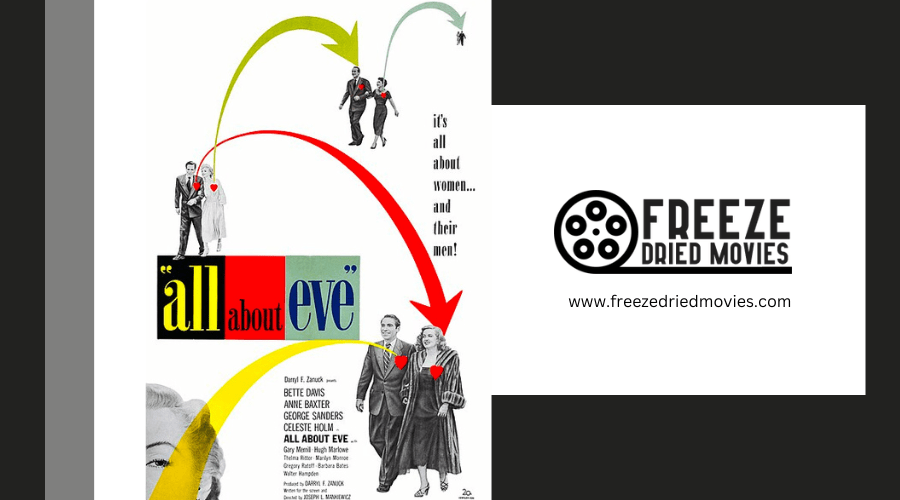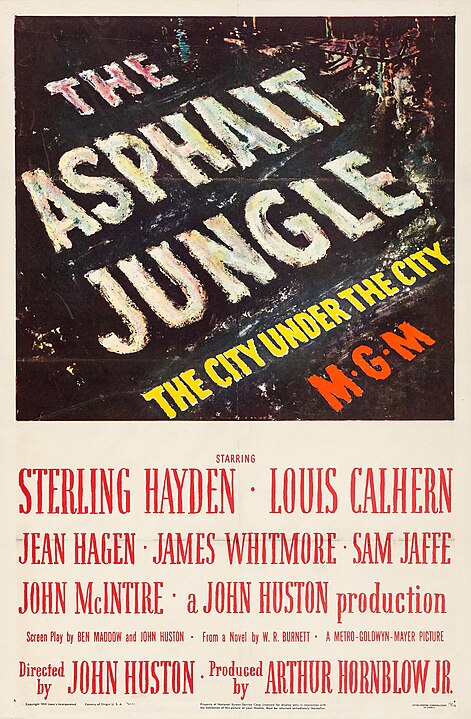You’re about to set off on a journey through the 1950s, a pivotal decade for British cinema, marked by the BAFTA winners who shaped its legacy. Imagine the creativity and innovation that surged through Britain, as filmmakers like Anthony Asquith and Charles Crichton not only challenged cinematic norms but set new benchmarks for storytelling and technical prowess. Their contributions didn’t just redefine the industry; they laid a foundation that continues to influence filmmakers worldwide. Now, let’s peel back the layers of this golden era, and you’ll discover the ingenuity and artistry that crowned British cinema’s finest.
Key Takeaways
- The BAFTA Awards in the 1950s recognized groundbreaking British films and filmmakers for their innovation and excellence.
- Notable winners included films that pushed narrative boundaries and showcased unique British storytelling.
- The awards highlighted the cultural impact of British cinema, influencing both national and international film landscapes.
- Films like “Room at the Top” received accolades for their portrayal of contemporary British life and social issues.
- The 1950s BAFTA winners set a precedent for artistic exploration and creativity in British cinema.
The Dawn of a New Era
The 1950s heralded a new era in British cinema, as filmmakers like Anthony Asquith and Charles Crichton brought fresh acclaim to the BAFTA Awards. During this transformative decade, you could witness a remarkable upsurge in the quality and diversity of films emanating from the British Isles. Directors such as Alexander Mackendrick and Zoltán Korda, alongside Asquith and Crichton, were at the forefront, crafting stories that resonated both domestically and globally.
Their films, including classics like ‘Whisky Galore!’ and ‘Cry, the Beloved Country,’ didn’t just entertain; they showcased the depth and breadth of British talent. These cinematic masterpieces, recognized and celebrated at the BAFTA Awards, underscored the importance and creativity of British cinema in the 1950s.
You were part of an audience witnessing the rise of a powerhouse in filmmaking during this era. The BAFTA Awards served as a beacon, highlighting the excellence and innovation of British filmmakers. This period wasn’t just about the glitz of awards but a reflection of the enduring legacy and impact of British cinema on the global stage.
1950: Setting the Stage
You’re about to explore how the 1950s heralded a pivotal era for British cinema, underpinned by the BAFTA Awards’ celebration of global cinematic masterpieces. From the inception of the Best Film From Any Source award, you’ll see how this period wasn’t just about recognizing talent but also about showcasing the cultural impact of the era’s films. Let’s uncover the origins of these prestigious awards and their role in elevating cinema to new heights.
Era’s Cultural Impact
During the 1950s, cinema’s landscape underwent a transformative shift, embracing color and widescreen innovations to captivate audiences worldwide. This era marked a golden age for British cinema, making a substantial contribution to the industry’s cultural impact. Through genres like film noir, Westerns, and musicals, filmmakers explored new storytelling techniques, influenced by international cinema from Europe and Japan. This period also saw the rise of iconic directors and actors, such as Alfred Hitchcock and James Dean, who left an indelible mark on film history. The introduction of television as a competitor spurred innovation in marketing and distribution, further enriching the cinematic experience. Awards during this era celebrated these advancements, highlighting British cinema’s pivotal role in shaping contemporary film culture.
Award Show Origins
Established in 1947, the BAFTA Awards initially recognized the cream of cinematic creations from across the globe. Originally dubbed the BAFTA Award for Best Film From Any Source, it celebrated top-tier storytelling and filmmaking, setting a prestigious benchmark in the industry.
As the years rolled on, categories expanded to include Best British Film and Best Film Not in English Language, casting a wider net to honor diverse cinematic brilliance. Films from multiple countries have vied for these accolades, showcasing the universal language of cinema. The BAFTA Award for Best Film, in particular, has a storied legacy, especially throughout the 1950s, spotlighting British Cinema’s remarkable contributions. This rich history underscores the BAFTA’s role in elevating excellence in film, making it a beacon for filmmakers worldwide.
1951: Breaking Boundaries
You’re about to explore how BAFTA winners of the 1950s, like ‘All About Eve’ and ‘Forbidden Games’, revolutionized cinema. These films didn’t just entertain; they challenged norms and introduced groundbreaking storytelling and techniques. Their cultural impact was profound, setting the stage for the cinematic masterpieces that followed.
Award-Winning Film Analysis
The 1950s BAFTA-winning films, like ‘All About Eve’ and ‘The Asphalt Jungle’, boldly pushed the boundaries of British cinema, exploring diverse themes and setting new standards in storytelling and filmmaking craftsmanship. These award-winning films showcased the creativity of British filmmakers, who dared to venture into uncharted territories of genres and narratives. With each BAFTA victory, they not only garnered critical acclaim but also solidified British cinema’s standing on the international stage. Directors and producers behind these cinematic gems set new benchmarks for excellence, influencing generations to come. The 1950s BAFTA winners, as a result, didn’t just win trophies; they laid the groundwork for a rich legacy of British cinema that continues to inspire and captivate audiences worldwide.
Cinematic Innovation Explored
Amid the 1950s, British cinema daringly shattered traditional storytelling and visual norms, ushering in an era of unprecedented innovation. Directors like Alfred Hitchcock led the charge, crafting iconic films such as ‘Vertigo’ and ‘Psycho’ that pushed cinematic boundaries. British films didn’t just tell stories; they explored unconventional narratives and themes, challenging what was considered acceptable and expected. This period was marked by visual experimentation and creative storytelling techniques, defining the innovation of British cinema. The 1950s became a pivotal decade for British cinema, laying the groundwork for future artistic exploration. Through bold choices and innovative approaches, British cinema of the 1950s broke free from the constraints of the past, heralding a new era of cinematic excellence.
Cultural Impact Assessed
Building on the innovative strides of the 1950s, BAFTA winners from this era not only showcased diverse storytelling and visual styles but also had a significant impact on cultural perceptions. These groundbreaking films didn’t just win the BAFTA Award for Best British Film; they challenged and reshaped traditional norms. By introducing innovative techniques and narratives, they encouraged British cinema to flourish, setting a legacy of excellence and creativity. Each BAFTA winner not only celebrated cinematic achievements but also paved the way for future filmmakers to explore new themes and artistic expressions. The cultural impact of these films is undeniable, breaking boundaries and inspiring generations. In doing so, they’ve secured British cinema’s vibrant evolution, maintaining its critical role in the global film industry.
1952: A Year of Innovation
Innovation defined the 1950s film landscape, with groundbreaking technologies like color film and widescreen mesmerizing audiences worldwide. This era brought an arsenal of iconic films into the limelight, setting the stage for what would be considered some of the best films under consideration at the British Academy Film Awards. Directors and actors leveraged these advancements to push the boundaries of storytelling, bringing to life genres like film noir, musicals, and science fiction in vivid detail. You witnessed the birth of classics such as ‘Vertigo’ and ‘Singin’ in the Rain’, films that not only showcased the era’s technological leaps but also the sheer talent prevalent in the industry.
As television emerged as a formidable competitor, the film industry didn’t retreat; instead, it adapted, introducing innovative marketing strategies and storytelling techniques influenced by international cinema movements like Italian neorealism and Japanese cinema. This period of innovation wasn’t merely about surviving the competition; it was about thriving, about setting new standards, and about ensuring the films under consideration at the British Academy Film Awards were not just seen but remembered. The 1950s were a reflection of cinema’s resilience and its capacity for reinvention, making it a truly remarkable decade in film history.
1953: Triumphs and Tributes
Celebrating the triumphs of the 1950s, BAFTA honored films like ‘All About Eve’ and ‘Forbidden Games,’ recognizing the era’s unmatched creativity and excellence in cinema. This decade saw a rich tapestry of genres, from gripping dramas to lighthearted comedies and monumental historical epics, all celebrated under the umbrella of the BAFTA Film Awards. You’re witnessing a time when British cinema, alongside international contributions, truly flourished, setting a high standard for storytelling and artistic achievement.
Icons like Billy Wilder, Alfred Hitchcock, and Akira Kurosawa were among the distinguished directors whose exceptional work didn’t just entertain but also pushed the boundaries of film-making. Their contributions, alongside movies such as ‘Dr. Strangelove or: How I Learned to Stop Worrying and Love the Bomb,’ ‘The Bad and the Beautiful,’ and ‘My Fair Lady,’ underscored the 1950s as a golden era for cinema. The BAFTA Film Awards of the 1950s didn’t just hand out trophies; they paid tribute to a global community of artists whose visions continue to inspire.
This celebration of diversity, creativity, and excellence showcased through the BAFTA winners of the 1950s is a demonstration of the enduring power and universal language of film.
1954: Masterpieces Unveiled
As we explore the masterpieces revealed during the 1950s, you’ll discover films that not only won BAFTA awards but also captured the hearts of audiences worldwide. Notable winners like ‘All About Eve,’ ‘The Asphalt Jungle,’ and ‘Viva Zapata!’ stand out as beacons of cinematic excellence. These films, alongside others such as ‘Forbidden Games,’ ‘The Bad and the Beautiful,’ and ‘Come Back, Little Sheba,’ showcase the diverse storytelling and groundbreaking artistry that defined the era.
Each winner from this decade brought something unique to the table, whether it was the compelling narrative of ‘All About Eve,’ the gritty realism of ‘The Asphalt Jungle,’ or the powerful drama of ‘Viva Zapata!’. These films not only clinched the prestigious awards but also left an indelible mark on the film industry, influencing countless filmmakers and audiences alike.
The 1950s were a time of innovation and creativity in cinema, and the BAFTA winners from this period reflect the very best of what the medium can offer. As you explore these masterpieces, you’ll find yourself transported to a golden age of film, where every frame, every scene, and every story told was a tribute to the timeless power of cinema.
1955: Cinematic Pioneers
Exploring further, we now shine a light on the cinematic pioneers of the 1950s, who transformed storytelling and visual artistry on the silver screen. Alfred Hitchcock, a mastermind behind suspense and psychological thrill, directed iconic films like ‘Vertigo’ and ‘Psycho’. His ingenious techniques and storytelling prowess set a new benchmark in filmmaking.
Billy Wilder wasn’t far behind, crafting the unforgettable ‘Sunset Boulevard’. This masterpiece not only captivated audiences but also offered a scathing critique of Hollywood, showcasing Wilder’s sharp wit and narrative strength.
Across the world, Akira Kurosawa introduced Japanese cinema to a global audience with ‘Rashomon’. This film’s innovative narrative structure and profound exploration of truth and subjectivity broke new ground, influencing countless filmmakers worldwide.
In the domain of musicals and dramas, Gene Kelly danced his way into the hearts of millions with ‘Singin’ in the Rain’, while James Dean became an emblem of youthful disillusionment in ‘Rebel Without a Cause’. Their contributions added depth and variety to the cinematic landscape of the 1950s, ensuring that this era wasn’t just about innovation in direction but also about memorable performances.
These pioneers pushed boundaries, challenged conventions, and left an indelible mark on cinema, making the 1950s a decade to remember.
1956-1959: Legacy of Excellence
In 1959, the BAFTA Awards set a new standard for cinematic excellence, honoring films that showcased the best of British storytelling. The BAFTA Award for Best Film not only recognized outstanding cinematic achievements but also highlighted the diversity and quality of films produced in the UK during that period. With notable films like ‘Room at the Top’ and ‘Look Back in Anger’ being recognized, the 1959 BAFTA Awards left a legacy of excellence that continues to inspire filmmakers and audiences alike.
- ‘Room at the Top’ stood out as a clear winner, exemplifying the richness and depth of British cinema.
- The nominations and awards in 1959 showcased the broad spectrum of themes and narratives embraced by British filmmakers, from social realism to passionate drama.
- The legacy of the 1959 BAFTA Awards has transcended time, reminding us of the power of storytelling and the enduring impact of quality cinema.
As you reflect on the 1959 BAFTA Awards, it’s clear they were not just a celebration of that year’s achievements but a milestone that has continued to influence the landscape of British cinema, ensuring its place in the annals of film history.
Frequently Asked Questions
Which British Actor Has Won the Most Baftas?
Well, it’s Daniel Day-Lewis leading with four wins, showcasing his unmatched talent in roles that have left audiences and critics alike in awe.
Can an American Film Win a Bafta?
An American film can definitely win a BAFTA Award. They’re open to international films, so American productions have a fair shot and have indeed clinched BAFTAs in various categories before.
Who Is the Oldest BAFTA Winners?
Ennio Morricone topped the list at 87 for Best Original Music in 2007, while Peggy Ashcroft and John Gielgud broke records in acting categories. They’re truly inspiring!
Is BAFTA and Oscar Same?
No, BAFTA and Oscar aren’t the same. BAFTA celebrates British and international film contributions, focusing more on British cinema, while the Oscars honor global filmmaking achievements. They’ve different criteria and scopes but both highly prestigious.
Conclusion
You’ve journeyed through the 1950s, a golden era where British cinema flourished under the brilliance of BAFTA winners. These filmmakers weren’t just creating movies; they were crafting legacies, pushing boundaries, and setting new standards. Their work from this decade has not only stood the test of time but continues to inspire and influence. The 1950s BAFTA winners truly embodied the spirit of innovation and excellence, ensuring that British cinema’s finest hour would forever be remembered and celebrated.



